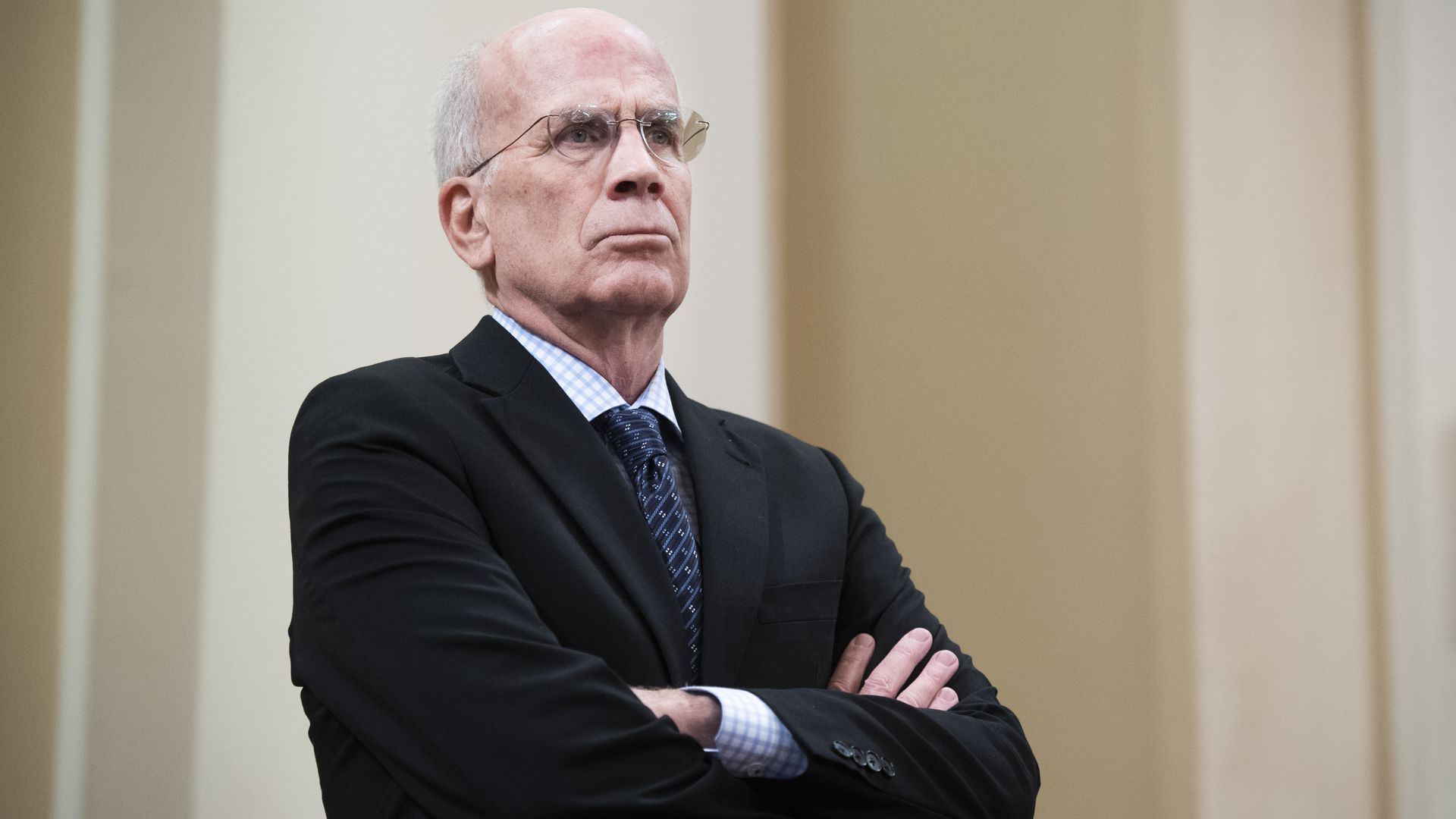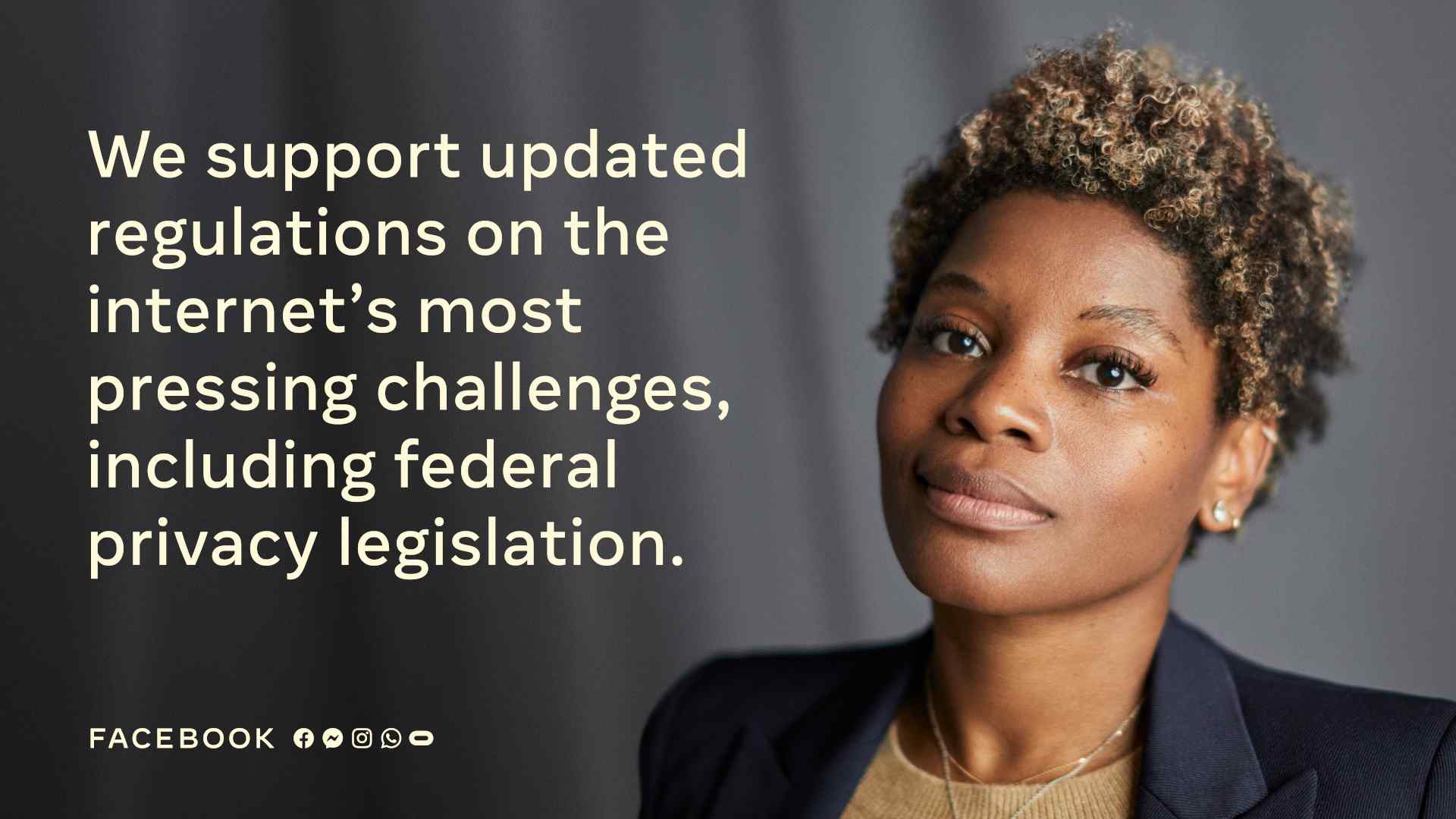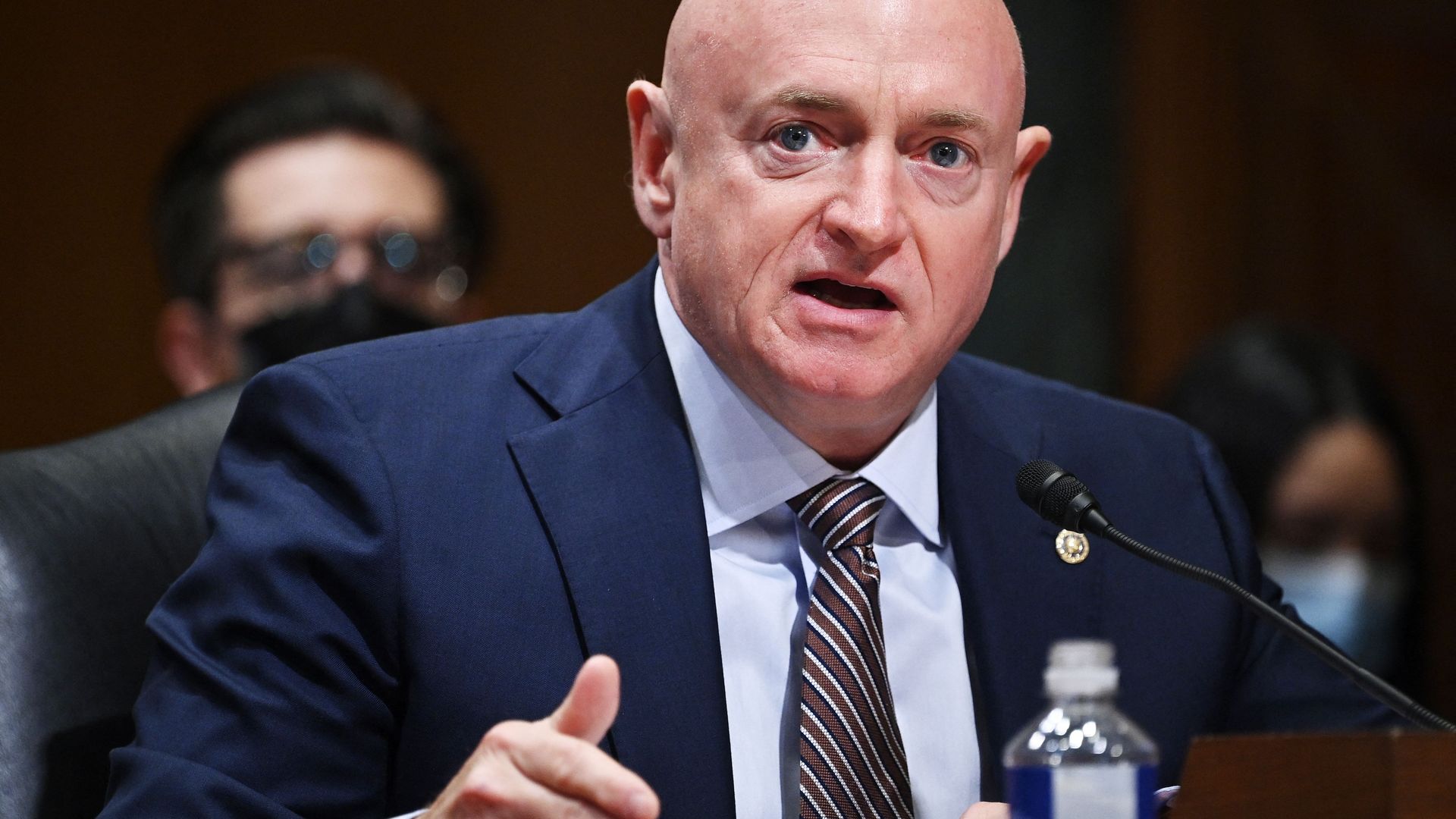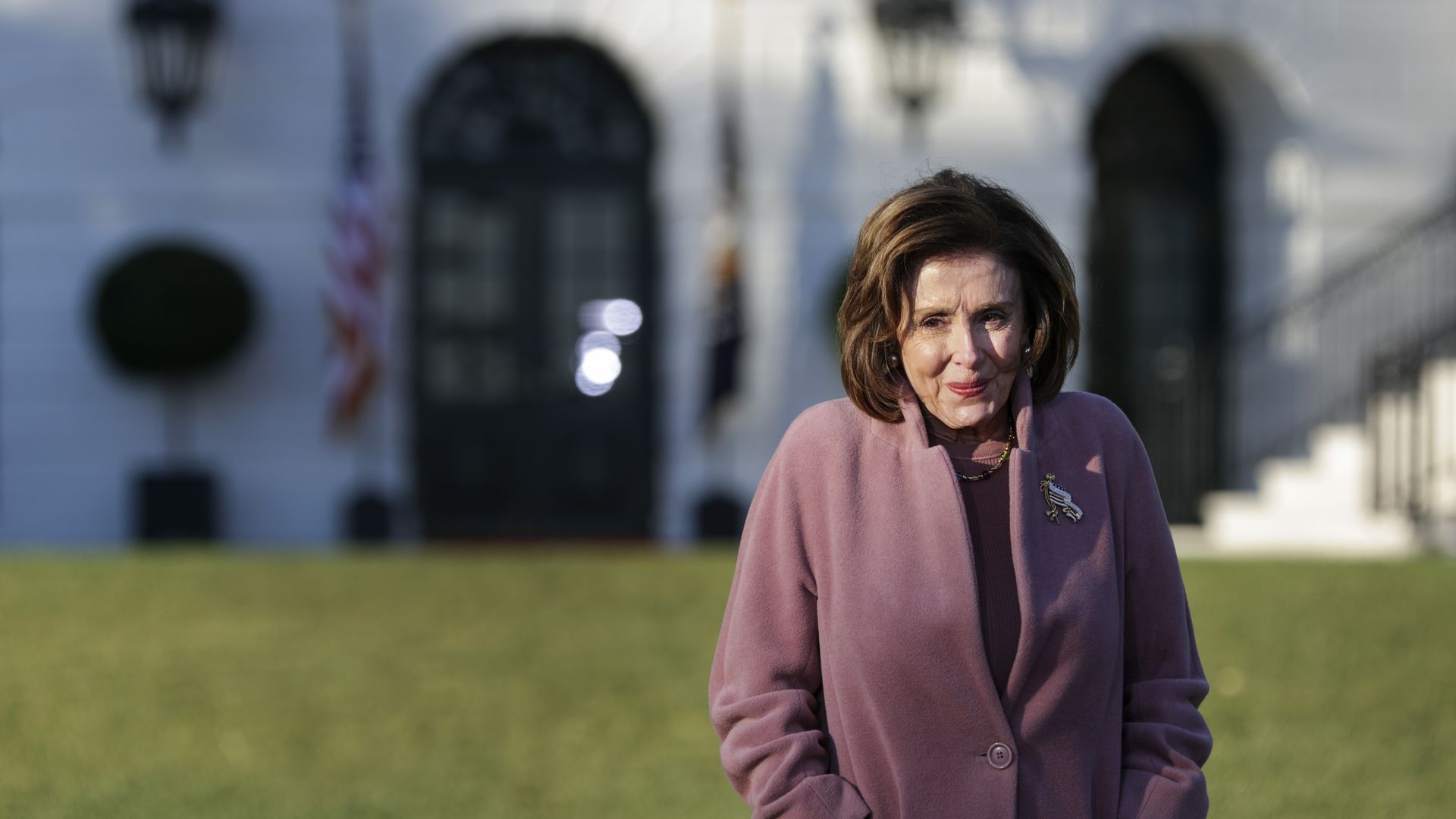| | | | | | | Presented By Facebook | | | | Axios Sneak Peek | | By the Axios Politics team ·Nov 15, 2021 | | Welcome back to Sneak. A pen across paper prepared the way for shovels in the ground. ⚡Situational awareness: President Biden said tonight during his virtual summit with Chinese President Xi Jinping, "We never walk away wondering what the other man is thinking." - Xi replied, based on a White House pool report, that he was "very happy to see my old friend."
- Reporters were then led out of the room.
Smart Brevity™ count: 1,421 words ... 5.5 minutes. Edited by Glen Johnson. | | | | | | 1 big thing: New border record |  | | | A man tries to scale the border wall. Photo: Nick Ut/Getty Images | | | | Migrants fleeing countries that refuse to take them back are driving new backlogs in the U.S. immigration system — and White House and Homeland Security officials worry this poses a growing obstacle to balancing humanitarian and national security concerns. Driving the news: U.S. officials at the southern border have come across an average of nearly 800 Venezuelan migrants each day for the past week— more than any other nationality except those from Mexico, according to internal immigration data obtained by Axios' Stef Kight. - There are now more Venezuelans in border custody than any other nationality, followed closely by Nicaragua. A record 13,400 crossed the border in October.
- More than 5,000 Cubans, Brazilians and Venezuelans crossed the dangerous Darién Gap into Panama last month, on top of more than 17,000 Haitians, according to Panamanian government data.
The U.S. government must decide whether to detain long term or release most single adults coming from nations reluctant to accept back their own citizens when the U.S. turns them away. What they're saying: "The Department of Homeland Security is committed to ensuring safe, orderly and humane immigration processes," said DHS spokesperson Eduardo Silva. - "DHS, in coordination with the Department of State, has regular discussions with partner countries in the hemisphere on migration-related matters, and continues to engage with foreign governments to improve cooperation with countries that systematically refuse or delay the repatriation of their nationals."
Keep reading. |     | | | | | | 2. Scoop: Welch preparing to run for Senate |  | | | Rep. Peter Welch. Photo: Tom Williams/CQ-Roll Call via Getty Images | | | | Rep. Peter Welch (D-Vt.) is indicating to colleagues he's preparing to run for the Senate seat being vacated by Patrick Leahy (D-Vt.), people familiar with the matter tell Axios' Hans Nichols. Why it matters: Vermont has never sent a woman to serve in either the House or Senate. Welch would likely clear the Democratic primary field but also would face the prospect of a challenge from the left, according to the Intercept. - Sen. Bernie Sanders (I-Vt.) has the potential to play kingmaker, foreclosing a primary if the progressive endorsed Welch.
- The 74-year-old, eight-term congressman already is in a strong position to win the nomination and retain the seat for this party.
- His odds are strong, locals say, even if Gov. Phil Scott — a rare successful Vermont Republican — decides to jump into the race.
- Scott, who won re-election by 41 points, has insisted he isn't interested in running — a sentiment his spokesperson repeated today.
Go deeper: Molly Gray, a Democrat and the current lieutenant governor, is poised to run for Welch's House seat, which he's held for 13 years. - State Sen. Kesha Ram Hinsdale, another Democrat and the first woman of color in the state Senate, also is mulling a run for the House seat.
The big picture: Leahy's announcement is setting off a scramble across a state with remarkably little political turnover and even less female representation. Keep reading. |     | | | | | | 3. By the numbers: No-shows |  Data: U.S. Census Bureau, RepresentUs; Table: Will Chase/Axios Millions of Americans were registered to vote last year but never made it to the polls for a variety of reasons, missing a chance to further boost record turnout, census surveys found. Why it matters: Voting rights advocates have watched bill after bill fail in Congress. Now, some like RepresentUs, are pushing the Freedom to Vote Act. The group tells Stef the legislation would make it easier for about 6.5 million people to vote, based on what registered voters said stopped them last time. - The two biggest reasons people gave for not voting seemingly defy legislation: a lack of interest or dislike for the candidates, according to the census data.
- But illness or disability, as well as general busyness, were two other common reasons.
- Supporters believe the Freedom to Vote Act could help by expanding early voting options and improving accessibility, according to the new analysis by RepresentUs.
What they're saying: "This analysis shows us tangible ways our leaders can and should protect Americans' freedom to vote," Josh Silver, RepresentUs co-founder and CEO, told Axios. "It's time for the U.S. Senate to pass this historic and popular bill by any means necessary." Between the lines: Many states changed their voting rules last year to make it easier for people to vote early — either in person or by mail — to avoid crowds amid the coronavirus pandemic. - Some states have continued to pass changes to state rules to expand access to different ways of voting and make casting a ballot easier.
- Others have gone the opposite way, adding steps and restrictions.
|     | | | | | | A message from Facebook | | Why Facebook supports updated internet regulations | | |  | | | | Rochelle is one of many experts working on privacy at Facebook — to give you more control over your information. Hear more from Rochelle on why Facebook supports updating regulations on the internet's most pressing challenges, including federal privacy legislation. | | | | | | 4. First look: Republicans eye Latinos to unseat Kelly |  | | | Sen. Mark Kelly. Photo: Mandel Ngan/Pool/AFP via Getty Images | | | | The National Republican Senatorial Committee has hired its first full-time Hispanic communications and political team as it targets Latino voters and tries to unseat Sen. Mark Kelly (D-Ariz.), Axios' Sarah Mucha reports. Why it matters: A large bloc of Latinos voted for President Biden in Arizona in 2020. Republicans have started focusing on this group not just in South Texas, as Axios earlier reported, but now, Arizona. Driving the news: The NRSC is getting an earlier start than usual in trying to convince Hispanic voters to vote Republican, releasing a trio of Spanish-language ads — first seen by Axios — that oppose Kelly. - The ads, which will air in Tucson, Phoenix and Yuma, Arizona, hit the senator broadly across a number of issues, including the border crisis, inflation and education.
What they're saying: "Mark Kelly has forgotten about Arizona's working families," a narrator says in Spanish. "From Tucson to Nogales, in our communities, there are many Hispanics like me and you who are paying the price for Mark Kelly's failures." - Although the midterms aren't for another year, the NRSC sees an advantage to starting spending money on advertising early when it feels as if the message can resonate with voters.
- Inflation and the border are both hot-button issues facing voters in Arizona at the moment.
- A Kelly spokesman did not immediately return a request for comment.
Keep reading. |     | | | | | | 5. Progressives target Manchin back home |  | | | Sen. Joe Manchin attends the signing of the bipartisan infrastructure bill today. Photo: Stefani Reynolds/Bloomberg via Getty Images | | | | Progressive activists are trying a high-wire act to influence Sen. Joe Manchin (D-W.Va.): launching big media buys in his home state to win his support for programs in Biden's $1.75 trillion social spending and climate plan. Why it matters: While the House is still waiting on a cost analysis from the Congressional Budget Office before voting this week, lawmakers, aides and activists recognize any final bill will largely be written by the Senate, Hans also writes. - That means passing muster with Manchin and Sen. Kyrsten Sinema (D-Ariz.).
- Manchin has indicated he's opposed to including a progressive wish — a provision to provide paid family leave — but activists are doubling down on getting him to "yes."
- The provision is currently in the House bill but could be knocked out if Manchin gives it a thumbs-down.
Between the lines: Reaching Manchin at home is one of the surest ways to get his attention, although it doesn't always work as planned. Driving the news: Paid Leave for All, along with Paid Leave Works for WV, is launching a $300,000 ad buy. - It includes a spot quoting Manchin from an MSNBC interview: "People should be able to have paid family leave as they need it," he says.
- "We need it now as part of Build Back Better," the narrator intones. "Paid leave is a big deal even for the smallest West Virginians."
The big picture: Now that Biden has signed the $1.2 trillion bipartisan infrastructure bill into law, progressives are nervous House centrists will vote against the bigger social spending package. - Another fear is Manchin will torpedo it, at least for this year.
- Centrists are also eyeing Manchin to see if he pumps the brakes on the reconciliation package, after new inflation data validated his concerns about rising prices.
Manchin demurred today when asked if inflation concerns will lead him to wait until next year. - "We'll be talking to everybody. We're looking at everything," he told reporters.
|     | | | | | | 6. Pics du jour |  | | | Photo: Alex Wong/Getty Images | | | | The signing of the $1.2 trillion bipartisan infrastructure bill was a photo-rich event. - House Speaker Nancy Pelosi grinned before the event.
Photo: Alex Wong/Getty Images Sen. Kyrsten Sinema (D-Ariz.) delivered remarks. Photo: Mandel Ngan/AFP via Getty Images Sen. Rob Portman (R-Ohio) shook hands with Senate Majority Leader Chuck Schumer (D-N.Y.), before delivering his own remarks in the bipartisan spirit of the event. Photo: Mandel Ngan/AFP via Getty Images President Biden basked in the Golden Hour glow, as did Vice President Kamala Harris, Labor Secretary Marty Walsh and Transportation Secretary Pete Buttigieg, among others. |     | | | | | | A message from Facebook | | Facebook's industry-leading investments are stopping bad actors | | |  | | | | We've invested $13 billion in teams and technology over the last 5 years to enhance safety. It's working: In just the past few months, we took down 1.7 billion fake accounts to stop bad actors from doing harm. But there's more to do. Learn more about how we're working to help you connect safely. | | | | 📬 Thanks for reading. A reminder your family, friends and colleagues can subscribe to Sneak or any of Axios' other free local and national newsletters through this link. |  | | It'll help you deliver employee communications more effectively. | | | | | | Axios thanks our partners for supporting our newsletters. If you're interested in advertising, learn more here.
Sponsorship has no influence on editorial content. Axios, 3100 Clarendon Blvd, Suite 1300, Arlington VA 22201 | | | You received this email because you signed up for newsletters from Axios.
Change your preferences or unsubscribe here. | | | Was this email forwarded to you?
Sign up now to get Axios in your inbox. | | | | Follow Axios on social media:    | | | | | |













No comments:
Post a Comment